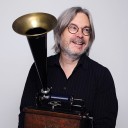There has been a growing interest in the use of experimental approaches to the study of media histories and their cultures. An increasing number of scholars researching at the intersection of media history and theory, are breaking new ground while working with archival sources and artefacts in experimental ways, e.g. through historical re-enactments and hands-on simulations. "Doing Experimental Media Archaeology: Practice & Theory" (DEMA) is a FNR-CORE-funded research project, which aims to study this potential of hands-on experimentation so as to better understand and experience the materiality of old media technologies and their practices of use.
In their 2014 essay “Experimental Media Archaeology: A Plea for New Directions”, Andreas Fickers and Annie van den Oever underline the heuristic potential of hands-on approaches for re-sensitising scholars to the materiality of bygone media technologies and the tacit knowledge involved in their technical, social and cultural usages:
“Doing re-enactments with old media technologies in an experimental media-archaeology lab will produce new historical, ethnographic and empirical knowledge about past user practices and media experiences.”1
Historical re-enactments can create new insights about the sense of time and temporality that is inscribed in the materiality of media technologies and bring about more awareness of the spatiality and social dynamics involved in past media usages. Hands-on experiments will also enable a better understanding of the constructivist nature of, e.g. film and video, photographs and audio recordings, as historical sources, and allows us, in essence, to experience past media usages as social and cultural practices.
As a methodological approach, experimental media archaeology draws on insights from the fields of experimental archaeology and the history of science and technology. Furthermore, it builds on the scholarship of media archaeology which has emphasized the necessity for renewed historiographical narratives, thereby encouraging its scholars to explore the materiality of the medium. Whereas classical media archaeology has, to a large extent, been a discourse-oriented endeavour, focusing on the discursive construction and symbolic meaning of various media technologies, experimental media archaeology explores the materiality of past media technologies by means of a hands-on and experimental approach. As research method, it aims to turn the media archaeologist and historian into an experimenter.
“Doing media archaeological experiments will turn the historian into an experimenter.”
The heuristic potential of experimental media archaeology has been traced before, but the practical and methodological challenges of hands-on work in this field as a new means of knowledge production have been largely unexplored. One of the main objectives of DEMA will be to reflect systematically on the methodological underpinnings of doing experimental media research.
Using two distinct media technologies as case studies, one visual and one auditory, we will perform a structured series of experiments and investigations. The project will initially focus on individual technologies and practices of amateur filmmaking in the early twentieth-century alongside historical sound amplification devices from the pre-electronic era. Our purpose is to establish a methodological toolkit and experimental system for the exploration of past media usages. This best practice guide will aim to provide a framework for planning, organizing, conducting, documenting and analyzing media archaeological experiments from across the field.
The DEMA project team consists of: Prof. Dr Andreas Fickers (PI), Dr. Tim van der Heijden, Dr. Aleks Kolkowski (post-doctoral researchers), and Dr. Stefan Krebs (coordinator).
For more information, see the project website: https://dema.uni.lu/.
- 1. A. Fickers & A. van den Oever, “Experimental Media Archaeology: A Plea for New Directions”, in: A. van den Oever (ed.), Technē /Technology: researching cinema and media technologies, their development, use, and impact. Amsterdam: Amsterdam University Press, 2014, p. 276.






